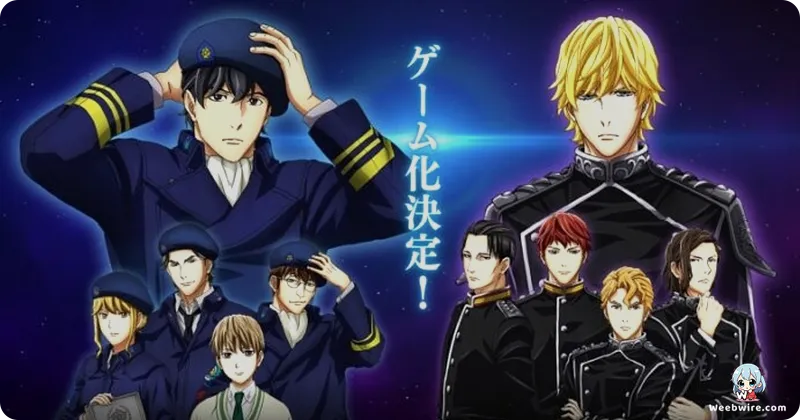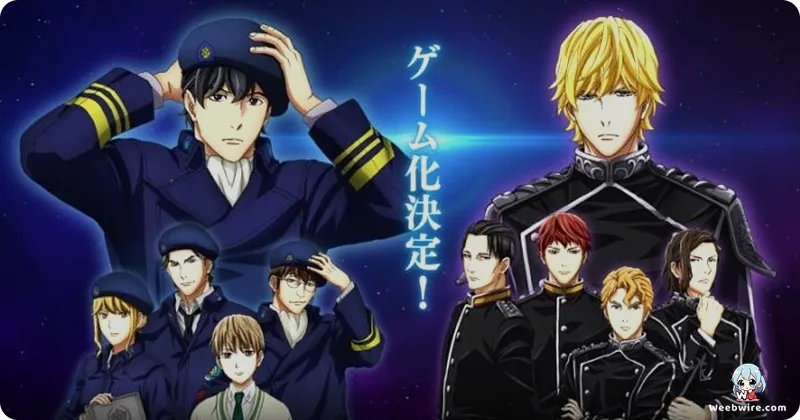Unveiling the Enduring Legacy: Timeless Trivia from Legend of the Galactic Heroes
4 months ago
Share this news:

More than just an anime, Legend of the Galactic Heroes (LotGH) stands as a colossal achievement in animated storytelling. It is a sweeping space opera that delves deep into the intricate tapestry of politics, warfare, and the very essence of human nature. Since its debut as an Original Video Animation (OVA) series in 1988, its sheer scope and profound philosophical underpinnings have solidified its status as a revered classic and a gold standard for sophisticated narrative craft. Yet, beyond its epic storyline and strategic brilliance, LotGH is rich with captivating facts and behind-the-scenes revelations that continue to fascinate its devoted global fanbase.
A truly astonishing, and often overlooked, detail for those new to the series is the unprecedented duration of its original OVA run. Spanning an incredible 110 episodes over a full decade, from 1988 to 1997, it proudly holds its place as one of the longest OVA series ever brought to life. This unique format provided its creators, notably studio Kitty Film, an expansive canvas to meticulously adapt Yoshiki Tanaka's complex novels. They were able to explore countless characters, intricate political maneuvers, and historical subplots without the typical constraints imposed by conventional television broadcasting schedules. This bold commitment to a direct-to-video release was revolutionary for its era, signaling unwavering confidence in the material and a steadfast dedication to delivering an uncompromised artistic vision.
What further distinguishes LotGH from many of its space opera counterparts is its deliberate departure from individual mecha combat. Unlike series where a single pilot in a powerful robot dictates the flow of battle, LotGH immerses viewers almost entirely in grand-scale fleet engagements. Spaceships are portrayed with the gravitas of historical naval vessels, where strategic positioning, robust supply lines, and critical command decisions are the true arbiters of victory, rather than relying on superhuman piloting prowess. This approach firmly grounds the science fiction elements in a more realistic, albeit futuristic, military context, amplifying the series' profound historical and political parallels.
The series is also celebrated for its innovative approach to its soundtrack. Eschewing an entirely original orchestral score, LotGH famously employed a vast and meticulously curated library of classical music masterworks. This includes iconic compositions from legends such as Beethoven, Mahler, Dvorák, and Wagner. The selection of each classical piece was far from arbitrary; every note was thoughtfully chosen to amplify the emotional weight, heighten suspense, or underscore the grandeur of specific scenes, imbuing the series with an intellectual and artistic depth rarely encountered in animation. This unconventional choice became an indelible part of the series' identity, providing a timeless auditory backdrop to its complex drama.

A lesser-discussed, but equally impressive, facet is the sheer caliber of talent assembled for its voice cast. The original Japanese voice actors were, and many remain, titans within the industry. The iconic rivalry between the Free Planets Alliance's Yang Wen-li and the Galactic Empire's Reinhard von Lohengramm was masterfully brought to life by Kei Tomiyama and Ryō Horikawa, respectively. Both veteran performers delivered nuanced portrayals that lent incredible depth to these legendary characters. The supporting cast was similarly stellar, weaving a rich tapestry of voices that significantly enhanced the series' immersive quality. This dedication to casting such high-caliber talent underscored the production's ambition to forge a work of enduring artistic merit.
Furthermore, the narrative's profound philosophical core remains a constant wellspring of discussion and analysis among fans. LotGH is far from a simplistic tale of good versus evil; it brilliantly constructs a conflict between two imperfect yet ideologically distinct systems: the decaying, aristocratic Galactic Empire and the flawed, bureaucratic Free Planets Alliance. Both factions feature characters driven by noble intentions yet plagued by profound flaws, compelling viewers to grapple with complex questions concerning governance, liberty, and the true nature of power. This moral ambiguity, where neither protagonist is unequivocally 'good' nor any antagonist purely 'evil,' elevates the series far beyond typical space opera fare, inviting continuous re-evaluation and thoughtful debate. This 'good versus good' conflict is a cornerstone of its lasting appeal, positioning it as a relevant study of political science expertly wrapped in an engaging science fiction package.
Finally, the enduring legacy of Legend of the Galactic Heroes stands as a powerful testament to its unparalleled quality and visionary scope. Decades after its initial release, it continues to draw in new generations of viewers who discover its profound storytelling and intricate world-building. Its influence is evident in subsequent anime and even Western science fiction, proving that a meticulously crafted narrative, rich character development, and a fearless willingness to explore complex themes can create a work that truly defies the passage of time. The original OVA series, spearheaded by Kitty Film, established a benchmark for narrative ambition and character development that few have matched, solidifying its place as an essential piece of anime history for any serious enthusiast.